Can fiction both satirize and critique our fascination with the true crime industry?
In “Penance” British author Eliza Clark attempts that feat with mixed results. The 29-year-old’s sophomore novel is a fictionalized account of a scandalous true crime non-fiction book detailing the horrific death of a teenage girl.
Clark takes a page from Stephen King in creating a fictional town, Crow-on-Sea, with its own strange history and allegedly haunted landmarks. She also gives each of the four main characters a fleshed out backstory filled with acrimonious divorces, strained relationships, and an unhealthy obsession with social media.
“Penance” is ambitious, detailed and reveals itself to be a rebuke of how the media and society as a whole profit from the violent deaths of girls and women.
Plot Summary
“Penance” is a book within a book that contains mixed media from podcasts, social media posts, and summaries of interviews and other sources.
Readers quickly learn that disgraced tabloid journalist Alec Z. Carelli is trying to redeem his failed true crime writing career by investigating the violent murder of Joan “Joni” Wilson.
Joni, 16, was kidnapped, tortured and set on fire by three of her female classmates on June 23, 2016. The premeditated crime took place in a beach chalet in the small, dying tourist town of Crow-on-Sea.
The case didn’t receive much attention from the true crime community until screen grabs of the murderers’ social media posts were shared. Then, podcasts and other outlets took an interest.
Convicted murderers Angelica Stirling-Stewart, Violet Hubbard, and ringleader Dolly Hart are mocked by podcasts included in the book to show interest in the case.
While “Penance” is ostensibly about Joni’s murder, it actually prioritizes examinations of each of the perpetrator’s feelings of isolation and frustration, boredom, and the public’s fascination with angry teenagers who kill their classmates.
Carelli leveraged all he had in leaving London and moving to Crow-on-Sea for several months to ingratiate himself into the community, research its history and landmarks, and manipulate family and friends of the victim and the perpetrators to speak with him.
Throughout his ethically questionable investigation, Carelli puts himself and the trauma of losing his 20-year-old daughter Francis to suicide front and center. In fact, he uses the loss to bond with Joni’s mother, Amanda Black, and get her to share more information about her only child.
The desperate author also pestered Angelica’s father, Simon Sterling-Stewart, into a brief but hostile interview. An established fantasy writer and a prominent Brexit proponent, Sterling-Stewart gives Angelica money but little supervision. His position in Crow-on-Sea also leads to trouble for her at school and in the trial for Joni’s murder.
Violet’s mother, whose name was changed to Dawn in “Penance,” told Carelli about her difficult pregnancy with Violet and the girl’s difficulty dealing with rejection and finding common interests with girls at school. As a trained social worker, she tried to address her only child’s challenges in healthy ways while also giving her privacy.
Both the victim and her killers are from middle class or affluent families. The only impoverished person represented is Jayde Spencer.
Jayde and her family live in the poor area, known as The Warrens, and the family is tied to gambling and crime. She’s arrested for Joni’s murder but is quickly cleared. Both she and her mother, Diana Spencer, provide background on the Spencers’ reputation and Jayde’s school struggles.
For Carelli and readers, Dolly’s family was the most difficult to find and understand. The hypersexualized teenager came to Crow as a teenager and immediately began making trouble and alienating students and adults alike. Her father died and she was forced to live with her religious mother and stepfather. Only her older half-sister, Heather, could be found to talk with Carelli.
Carelli wanted his fifth true-crime novel to be the definitive look at Joni’s death. That’s why he gave Crow-on-Sea, media transcripts, and interviews with tangentially related people so much space in his work.
As readers decide the value of Carelli’s efforts, the final interview of “Penance” casts the entire story in a new and troubling light.
Character Analysis
Main Characters
Joan “Joni” Wilson
Angelica Stirling-Stewart
Dolly Hart
Violet Hubbard
Jayde Spencer
Alec Z. Carelli
Joan “Joni” Wilson
Although her story is given the least amount of pages, Joni is the central figure of “Penance.” The plump redhead was an unpopular child who first befriended Violet before joining the popular girls in middle school. Like a child with newfound power, she took pleasure in bullying Angelica and others who once taunted her.
Joni also made enemies of Violet and Dolly with her oblivious and childish behavior. She abruptly ended her friendship with nerdy Violet to hang out with the cool kids and pursued a friendship/fliration with Dolly’s girlfriend, Jayde Spencer.
Angelica Stirling-Stewart
Angelica was spoiled, lonely, and obsessed with musical theater. Because she couldn’t find friends with similar interests at school, she became obsessed with posting on Tumblr of her dressed as a cat and casting choices for “Les Mis.” Joni and others ridicule Angelica both to her face during school lunch and online via anonymous comments on Tumblr.
After the death of her friend, Aleesha, at the local waterpark, Angelica started to believe she can speak to ghosts and has a connection to the afterlife. This leads to her connection with Dolly, despite their different social groups.
Dolly Hart
Dolly presented the most troubled and pitiable story of the four girls. The lone offspring of an unstable union, she lived with her temperamental father until his death. She then resided with her grandmother until her behavior exceeded what the elderly woman could handle. Finally, she reluctantly moved in with her biological mother and stepfather, both of whom she paints as oppressively conservative.
In her unhappiness, Dolly obsessed over American school shooters and creating a pocket hell in Crow-on-Sea while sleeping with tons of boys. She befriended Angelica and Violet to help with this endeavor. Jayde was openly cynical of the trio’s conjuring efforts, which led to her breakup with Dolly.
Violet Hubbard
Violet’s intense loneliness drove her to seek out encyclopedic knowledge of serial killers and gruesome murders. The attention of an English teacher prompted her to take an interest in Crow-on-Sea’s legends, including witch trials.
Dolly wanted Violet to lead her seance efforts to conjure evil forces because of this. Violet’s intense dislike of Angelica and her skepticism of the group’s supernatural abilities made for a contentious friendship. But, Violet had no one else.
Jayde Spencer
At the heart of Dolly’s desire to harm Joni was Jayde. The stereotypical lesbian with short hair, an interest in playing soccer with boys and taking martial arts classes, Jayde was the masculinity to Dolly’s va-va-voom femininity.
Jayde, having struggled in school because of ADHD and dyslexia and her family’s reputation, eventually ended her relationship with Dolly and removed herself from their conjuring activities.
Alec Z. Carelli
Carelli, a half-Italian British man, narrated “Penance” and strategically inserted himself and his beneficent actions into passages. He also took liberties with interviews and other information in the style of Truman Capote.
By the novel’s conclusion, it’s abundantly clear the 50-year-old is the villain of the story. His rationale for writing “Penance” and the way he collected information and cherry picked it reveals his priority to exploit the pain and suffering of those in Crow-on-Sea for monetary gain over everything else.
Final Thoughts
“Penance” felt too long and detailed to sufficiently make its point. The numerous weird and winding digressions bog down the scintillating novel and reduce the impact of Joni’s murder.
Despite its overstuffed content, Clark’s newest release does prove she’s able to unapologetically articulate the internal and external conflicts teen girls navigate growing up in the age of oversharing, isolation and social media.
The fictional true crime novel should be read understanding that Clark imbues every element with references to British history, educational structures, class systems, and media scandals. If you’re not British or an anglophile, some of the references may leave you puzzled.
Clark’s creative choices are intriguing, and I look forward to reading more of her work. Still, “Penance” is not a book I would recommend.
Rating
My rating is 3.5 stars out of five.
Book Details
Title: “Penance”
Author: Eliza Clark
Year of Publication: 2023
Number of Pages: 325


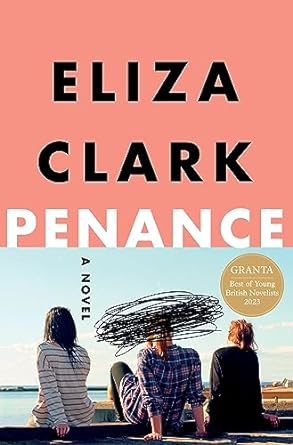
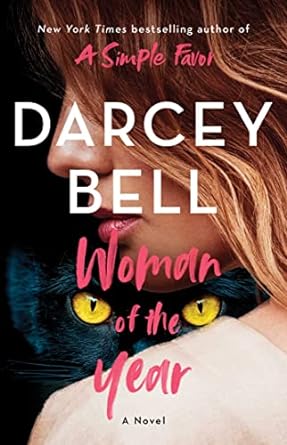
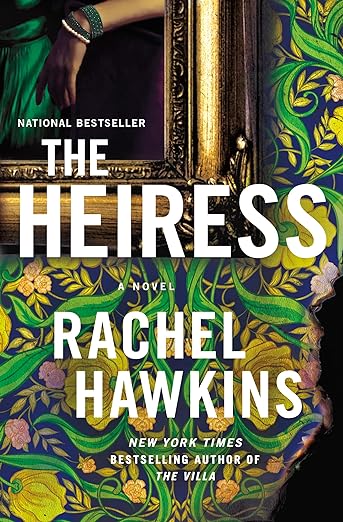
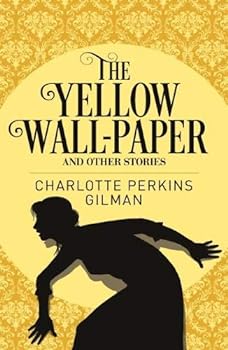

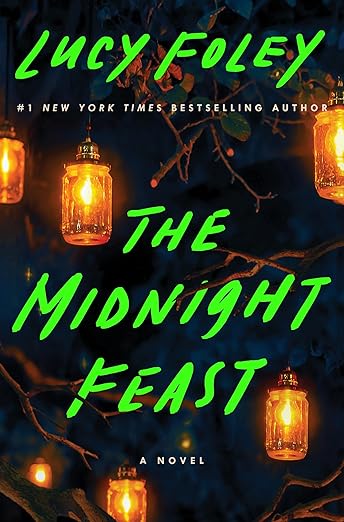
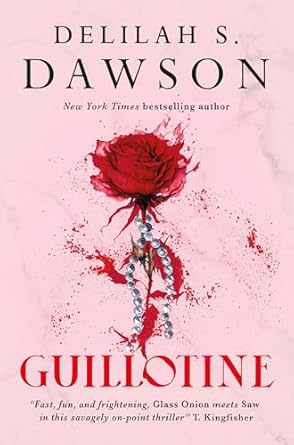

Comment on “‘Penance’: Meandering critique of the true crime industry”